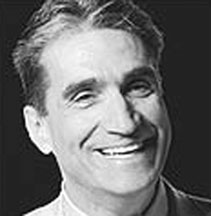In the introduction of Poems to Read, a book that he co-edited with poet Maggie Dietz, Robert Pinsky states, “Perhaps more than in some societies, we depend upon American schools to keep arts alive and available.” On Wednesday, April 23, the former Library of Congress Poet Laureate illuminated the reciprocal nature of this relationship by visiting UMass Boston as a guest of the Creative Writing Department, the English Department, and The Watermark literary journal. In addition to reading poetry, discussing his popular “Favorite Poem Project,” and serving as a judge for the Academy of American Poets Award, Pinsky came here with a message about the significance of art in modern society; without question, it is a message he knows well.
In 1997, during his first of an unprecedented three terms as Laureate, Pinsky founded the Favorite Poem Project, which was designed as a means for “celebrating, documenting, and promoting poetry’s role in Americans’ lives.” The project invited Americans to share their favorite poems through a yearlong open call for submissions, and reviewed 18,000 responses from people of diverse age, ethnicity, occupation, and location. From the submissions, the project created the acclaimed Favorite Poem Project Video as well as two anthologies, the best-selling Americans’ Favorite Poems, and the recently released Poems to Read.
In addition, the project has inspired nearly 1,000 Favorite Poem readings across the country, and has established numerous educational resources, including a website and lesson plans, aimed at bringing poetry into libraries, schools, and community organizations. Each summer, the project coordinates with the Boston University School of Education, as well as a number of notable poets, such as Louise Glück and Gail Mazur, to conduct a two-week-long seminar for New England educators.
Faced with jarring state of world affairs, particularly after the events of September 11, it would seem that the timing of Pinsky’s project could not have been better or more appropriate. Especially in the context of present conflicts, a number of dividing lines have emerged among our nation’s population that threaten to diminish our collective sense of culture-one of the most important foundations for the preservation of art. Using poetry as a catalyst, Pinsky has worked to bridge some of these gaps, demonstrating not only the role of the artist in society, but also the beneficial effects of art itself.
Professor Askold Melnyczuk, Director of UMass Boston’s Creative Writing Program, writes about Pinsky, “[He’s] not merely one of our true American bards, he’s also constantly pushing at the boundaries of our democratic vistas.” He continues, “His book Democracy, Culture, and the Voice of Poetry offers fresh insights into how we can maintain a complex diverse culture without fragment or losing our sense of who we are. In an age when the ideal of democracy is besieged by the impulse toward a new kind of feudalism, his voice is more important than ever.”
Pinsky’s appearance at UMass Boston makes the thrust of his message even more pertinent. As news of fiscal trouble and campus unrest runs through the campus community, focusing attention on the beauty of art becomes not only comforting but necessary. “His presence on campus at this turbulent moment could not be better timed,” says Professor Melnyczuk, “He knows full well poetry’s power to, well, heal. Moreover, his presence here might remind us that our urban mission embraces the arts as a necessity, not a luxury reserved for the palette of a ‘privileged’ elite.”
Pinsky does in fact speak to this notion, writing in Poems to Read, “In the diverse, rapidly shifting culture of the United States, arts like poetry are not cared for and handed on by a single, unifying folk culture. Nor is poetry curated by an aristocracy or a high bourgeoisie for whom art might have a snob value.” Ultimately, his visit to UMass Boston seems to embody the very message that his Favorite Poem Project perpetuates.
Considering the scope and caliber of his artistic work, one gains a better sense of the poet’s qualifications as a spokesperson for the arts. Currently a professor in BU’s Graduate Creative Writing Program, Pinsky has written six books of multi-award-winning poetry, including The Figured Wheel and Jersey Rain, four books of essays and criticism, and two acclaimed translations. Steeped in the tangibles of twentieth century life, though reflective of a number of timeless historical voices, Pinsky’s poetry captures something quintessential about the individual and his or her society. Professor Melnyczuk writes of his poetry, “[it] offers access without false simplification, the apparent directness of his poems often belying the complexity of his thought, and what’s even more remarkable, the depth of feeling they manage to contain inside the laser mesh of their lines.”
If nothing else, one might simply appreciate his visit to campus for the rarity of the occasion alone. Though Boston is noted for its embracing of the arts, the all-too-familiar scheduling demands placed on students, especially UMass students, likely creates a scenario in which most people are unable to get involved even if their interest motivates them. Fortunately, Pinsky’s visit represents a major step towards bringing poetry directly to the people. “I’m glad that our students will get a chance to hear him,” said Professor Melnyczuk, “While he is generous in his appearances around Boston, many of our students simply don’t have the time to get to many events off campus.”
It seems appropriate to assert that our nation has been lead in the right direction under the guidance of Pinsky, whose ambitious projects have truly made poetry an art for the public. At UMass Boston, where the heartbeat of poetry is kept alive by eager students, dedicated faculty, and groups like the “UMB Poetry Circle,” Pinsky’s visit suggests that, in the future, this heartbeat will simply get stronger.

